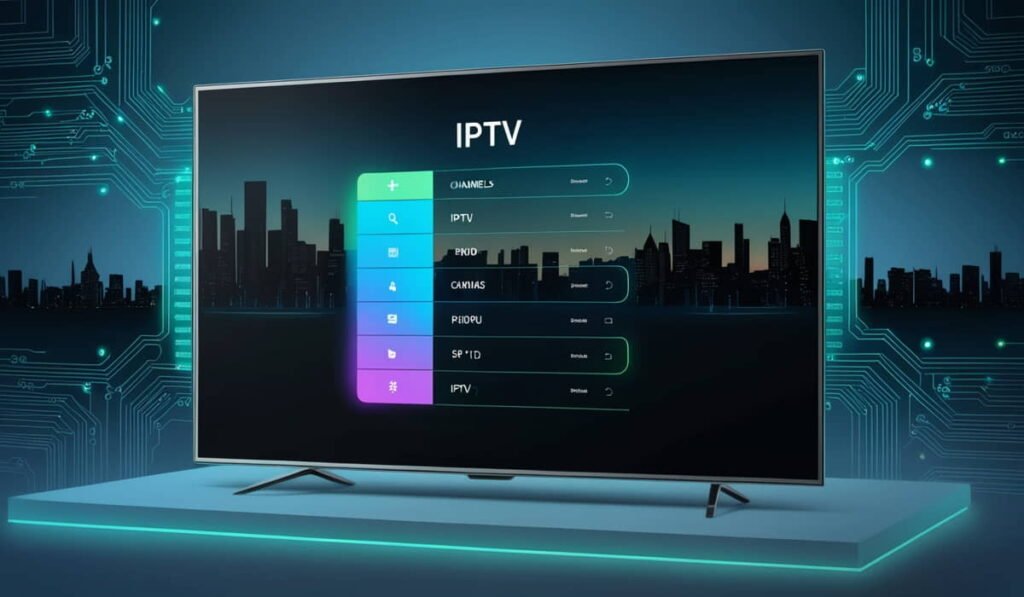How IPTV Server Works: A Simple Guide

IPTV stands for Internet Protocol Television. It means watching TV using the internet instead of using satellite, cable, or antennas. But have you ever wondered how the system behind it works? Let’s break it down and explain how an IPTV server works in the simplest way possible.
What Is an IPTV Server?
An IPTV server is the main system that stores, organizes, and delivers TV channels, shows, and videos to users through the internet. Think of it like a giant computer that sends video content to your screen when you choose a channel or program.
Basic Idea Behind IPTV
- Traditional TV sends signals through cable or satellite.
- IPTV sends TV content using the Internet.
- You can watch it on Smart TVs, Android boxes, phones, or even laptops.
- All you need is an internet connection and a device that supports IPTV.
Components of an IPTV System
To understand how the server works, let’s look at the main parts involved in the system:
1. Content Source
This is where the shows, movies, or channels come from. It could be:
- Live TV channels from broadcasters
- Video files from streaming companies
- Recordings or on-demand content
2. Encoder
If the content is live, it is first converted into digital form using an encoder.
This step makes the video ready for streaming over the internet.
3. IPTV Server
The heart of the IPTV system. The server does the following:
- Stores video files and channels
- Manages the user’s requests
- Sends the content to the viewer’s screen
The server uses IP (Internet Protocol) to deliver content. That’s why it’s called IPTV.
4. Middleware
Middleware is like a control panel between the user and the server.
It:
- Helps you navigate channels
- Manages subscriptions and accounts
- Provides the interface you see on your screen
5. Video Player or IPTV App
To watch IPTV, you need a video player or IPTV app like:
- VLC Media Player
- IPTV Smarters
- TiviMate
- STB Emulator
These apps fetch the content from the IPTV server and play it on your device.

Types of IPTV Services
There are three main types of IPTV:
1. Live TV
This is just like watching normal TV but through the internet.
Example: Watching a football match or news channel live.
2. VOD (Video on Demand)
You choose a movie or show and watch it anytime.
Just like Netflix, but through IPTV.
3. Catch-Up TV
Missed a live show? You can go back and watch it later.
This is useful for users in different time zones.
How Does the Server Deliver the Content?
Here’s the simple step-by-step process:
- The IPTV server stores or receives the TV content.
- When a user selects a channel or video, the request is sent to the server.
- The server finds the content and streams it to the user using the internet.
- The video is played on the screen through an IPTV app or device.
- All this happens in real-time, usually with buffering protection for smooth playback.
IPTV Server Protocols
IPTV uses different streaming protocols to send data. Some common ones are:
- HTTP Live Streaming (HLS)
- Real-Time Messaging Protocol (RTMP)
- MPEG-DASH
- UDP and RTP (for multicast streaming)
Each protocol affects how the video is loaded and how fast it plays.
Is IPTV Server the Same as IPTV Provider?
Not always.
- An IPTV server is the technical machine behind the service.
- An IPTV provider is the company or seller that gives users access to channels using its server.
Some IPTV providers have their own servers, while others rent them.
IPTV Server Hosting Options
You can either:
✅ Self-Host Your Own IPTV Server
- Needs high-speed internet and a strong computer system.
- You’ll have full control.
- Ideal for small services or personal use.
✅ Use a Hosted IPTV Server
- Pay a company to host your server.
- Less setup, more convenience.
- Best for commercial IPTV businesses.
Benefits of Using an IPTV Server
- You can watch from anywhere with internet
- More channels, movies, and shows
- Works on multiple devices
- Better control and features
- Often cheaper than cable or satellite
Things to Keep in Mind
✅ Internet Speed Matters
- A slow internet will lead to buffering and low-quality video.
- Minimum 10 Mbps recommended for HD streaming.
✅ Legal Check
- Always check if the IPTV service is legal in your country.
- Some illegal servers stream pirated content.
✅ Security
- Use secure connections (SSL) for your IPTV apps.
- Avoid shady providers who ask for personal data.
Common Devices That Use IPTV Servers
- Smart TVs (Samsung, LG, etc.)
- Android TV boxes
- Amazon Firestick
- Laptops or PCs
- Mobile phones and tablets
How to Connect to an IPTV Server
- Get a subscription from an IPTV provider
- Install the IPTV app on your device
- Enter your server URL, username, and password
- Start watching live channels or videos
That’s it – simple and fast!
Final Thoughts
An IPTV server is the engine that powers the way we watch internet TV. From live sports to on-demand movies, everything is stored, managed, and delivered by the server. Whether you use it at home or build your own service, understanding how an IPTV server works helps you enjoy the experience more and avoid common problems.
As IPTV grows, more people will rely on these servers to stream high-quality content anytime, anywhere.

